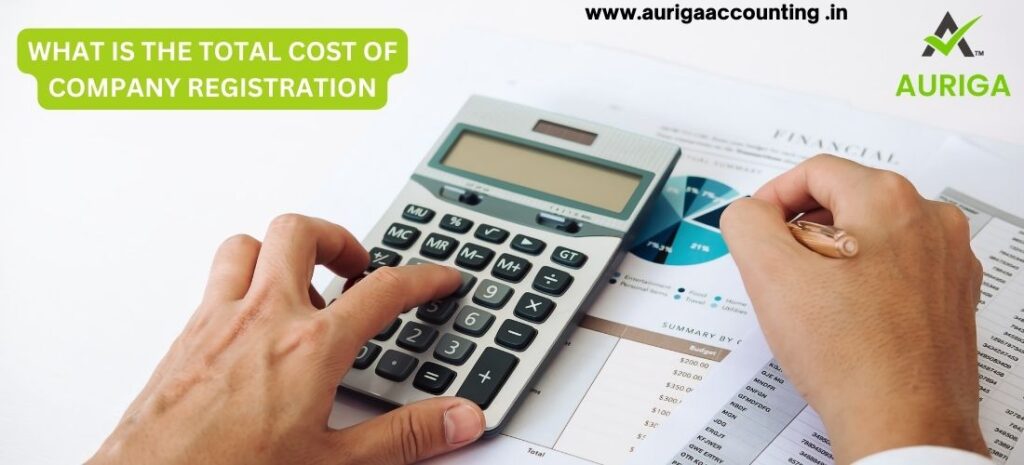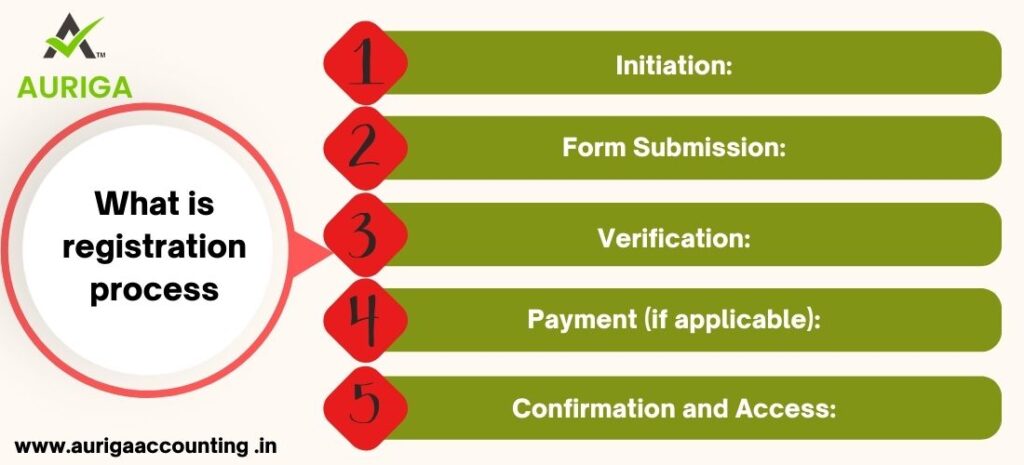
WHAT IS THE TOTAL COST OF COMPANY REGISTRATION
Introduction
ToggleYOU NEED TO KNOW WHAT IS THE TOTAL COST OF COMPANY REGISTRATION
The total cost of company registration varies based on factors like the type of company, professional fees, government charges, and optional services. Government fees cover the filing of documents, while professional fees, often charged by Chartered Accountants or registration services, include guidance through the process. Optional services, like obtaining PAN or TAN, may incur additional costs. The total cost can range from a few thousand to several thousand rupees, and it’s advisable to obtain detailed quotes and plan accordingly. The expertise and support provided during registration contribute to a smooth and legally compliant process. Visitofficialwebsite
Comprehensive Guide to the Total Cost of Company Registration in India
1. Type of Company: The choice of the company’s legal structure significantly influences the total cost. Common structures include Private Limited Company, Public Limited Company, Limited Liability Partnership (LLP), and Section 8 Company.
2. Professional Fees: Engaging professionals such as chartered accountants, company secretaries, and lawyers is common. Their fees depend on the complexity of the registration process and the range of services they provide.
3. Government Fees: Government charges are payable to the Ministry of Corporate Affairs (MCA) and the Registrar of Companies (RoC). These fees cover filing necessary documents and obtaining the Certificate of Incorporation.
4. Stamp Duty: Stamp duty is applicable for the Memorandum of Association (MoA) and Articles of Association (AoA). The rate varies based on the state where the company is registered.
5. Name Reservation Fee: Before registration, reserving a unique name for the company incurs a nominal fee through the Reserve Unique Name (RUN) service.
6. Digital Signature Certificate (DSC): Directors and subscribers need a Digital Signature Certificate for digitally signing documents filed with the RoC. The cost of obtaining DSCs is an essential consideration.
7. Incorporation Forms: Filing necessary incorporation forms incurs fees. The forms vary based on the type of company and the structure chosen.
8. Notarization and Certification: Certain documents may require notarization or certification by professionals, incurring additional costs.
9. Professional Guidance for Compliance: Post-incorporation, ongoing professional guidance for compliance, annual filings, and regulatory matters is often sought.
10. Optional Services: Additional services such as obtaining a PAN (Permanent Account Number), TAN (Tax Deduction and Collection Account Number), and GST registration may incur extra costs.
Is registering a company free in India
Registering a company in India is not entirely free; it involves various costs and fees associated with the incorporation process. The costs can vary based on factors such as the type of company, authorized capital, professional fees, government charges, and additional services required. Here’s a breakdown of the major components contributing to the overall cost of registering a company in India:
Professional Fees:
- Engaging the services of professionals such as chartered accountants, company secretaries, and lawyers may involve fees. These professionals assist in preparing and filing necessary documents and guide you through the registration process.
Government Fees:
- Government fees are payable to the Ministry of Corporate Affairs (MCA) and the Registrar of Companies (RoC). These fees cover the filing of incorporation documents, obtaining the Certificate of Incorporation, and other regulatory processes.
Stamp Duty:
- Stamp duty is applicable for the Memorandum of Association (MoA) and Articles of Association (AoA). The rate varies from state to state, and it is a statutory requirement.
Name Reservation Fee:
- Reserving a unique name for the company incurs a nominal fee. The Reserve Unique Name (RUN) service is used for this purpose.
Digital Signature Certificate (DSC):
- Directors and subscribers need Digital Signature Certificates for digitally signing documents filed with the RoC. The cost of obtaining DSCs is an essential consideration.
Incorporation Forms:
- Filling out the necessary incorporation forms requires payment of filing fees. The forms vary based on the type of company and the chosen structure.
Notarization and Certification:
- Certain documents may require notarization or certification by professionals, incurring additional costs.
Professional Guidance for Compliance:
- Post-incorporation, companies often seek ongoing professional guidance for compliance, annual filings, and other regulatory matters.
Optional Services:
- Additional services such as obtaining a PAN (Permanent Account Number), TAN (Tax Deduction and Collection Account Number), and GST registration may incur extra costs.
It’s important to note that while registering a company involves costs, these expenses are considered investments in establishing a legal business entity. The specific costs can vary based on the circumstances and requirements of the business. Entrepreneurs should budget for these expenses to ensure a smooth and legally compliant registration process.
How do I start a registered company
- Research and Planning. …
- Choosing a Business Structure. …
- Selecting a Company Name. …
- Registering with the Registrar of Companies.
- Drafting and Filing the Memorandum and Articles of Association. …
- Obtaining the Certificate of Incorporation. …
- Applying for PAN and TAN.
How much does CA charge for company registration
The charges for company registration by a Chartered Accountant (CA) in India can vary based on several factors, including the type of company, the complexity of the registration process, and the services provided by the CA. It’s essential to understand that CAs may have different fee structures, and the fees can be influenced by additional services that may be required during the registration process. Here are some factors that can affect the charges:
Type of Company:
- The fees for registering different types of companies, such as Private Limited, Public Limited, Limited Liability Partnership (LLP), or Section 8 Company, may vary.
Authorized Capital:
- The authorized capital of the company can influence the fees. Higher authorized capital may involve additional paperwork and, consequently, higher charges.
Scope of Services:
- The range of services provided by the CA can impact the fees. This may include drafting the Memorandum of Association (MoA), Articles of Association (AoA), obtaining Digital Signature Certificates (DSCs), and providing ongoing compliance support.
Government Fees:
- While government fees are separate from the CA’s charges, the CA may include these fees in their overall quote or charge them separately.
Additional Services:
- If there are additional services required, such as obtaining a PAN (Permanent Account Number), TAN (Tax Deduction and Collection Account Number), or GST registration, the CA may charge additional fees for these services.
Experience and Reputation:
- The experience and reputation of the CA can also influence their charges. CAs with a strong track record and expertise in company registration may command higher fees.
Geographic Location:
- The location where the CA operates can impact the fees. In metropolitan areas or cities with a higher cost of living, fees may be relatively higher.
It’s advisable to obtain detailed quotes from multiple CAs, specifying the services included, to make an informed decision. Additionally, entrepreneurs should ensure that the CA is well-versed in the specific requirements of the chosen type of company and can provide comprehensive support throughout the registration process.
While it’s important to consider the cost, choosing a CA based solely on fees may not be the best approach. It’s crucial to evaluate their expertise, track record, and the level of support they can provide to ensure a smooth and legally compliant registration process.
How much does it cost to create a company
The cost to create a company varies depending on several factors, including the type of company, its structure, the location, and whether you engage professional services. Here’s a general overview of the potential costs associated with creating a company:
Government Fees:
- Government fees are a significant part of the cost and are payable to the regulatory authorities. These fees cover the filing of incorporation documents, obtaining the Certificate of Incorporation, and other related processes. The specific fees depend on the type and authorized capital of the company.
Professional Fees:
- If you choose to engage professional services, such as hiring a Chartered Accountant (CA) or a company registration service, there will be professional fees. These fees cover assistance with the preparation and filing of necessary documents, obtaining Digital Signature Certificates (DSCs), and guiding you through the registration process.
Digital Signature Certificate (DSC) Costs:
- Directors and subscribers need DSCs for digitally signing documents filed with the Registrar of Companies (RoC). The cost of obtaining DSCs is an essential consideration.
Stamp Duty:
- Stamp duty is applicable for the Memorandum of Association (MoA) and Articles of Association (AoA). The rate varies based on the state where the company is registered.
Name Reservation Fee:
- Reserving a unique name for the company incurs a nominal fee. This is done through the Reserve Unique Name (RUN) service.
Optional Services:
- Additional services, such as obtaining a PAN (Permanent Account Number), TAN (Tax Deduction and Collection Account Number), and GST registration, may incur extra costs.
Notarization and Certification:
- Certain documents may require notarization or certification by professionals, incurring additional costs.
Post-Incorporation Compliance Costs:
- After incorporation, there are ongoing compliance requirements, and you may incur costs for annual filings, statutory audits, and other regulatory submissions.
Geographic Location:
- The cost can vary based on the location of the registration. In metropolitan areas or cities with a higher cost of living, professional fees may be relatively higher.
It’s important to note that the costs mentioned above are indicative, and actual costs can vary based on the specific requirements and circumstances of your company. Obtaining detailed quotes from professionals and service providers will help you estimate the total cost more accurately.

What is registration process
The registration process can vary based on the context, such as company registration, event registration, or any other type of registration. However, here are five general points that outline a typical registration process:
Initiation:
- The process begins with the initiation of registration, where individuals or entities express their intent to participate or join by providing necessary information. This can include personal details, contact information, and specific details related to the registration purpose.
Form Submission:
- Registrants typically need to complete a registration form, either online or in physical format, providing essential details required for the specific registration. The form may vary based on the nature of the registration, covering aspects such as personal information, preferences, or business details.
Verification:
- In many cases, a verification step is included to ensure the accuracy of the provided information. This may involve confirming email addresses, validating identity documents, or conducting background checks, depending on the context of the registration.
Payment (if applicable):
- For certain registrations, especially events or memberships, a payment step may be involved. Registrants may be required to pay fees or charges associated with the registration. This can be done through various payment methods, and a confirmation of payment is usually provided.
Confirmation and Access:
- Once the registration process is successfully completed, registrants receive a confirmation. This confirmation may include a unique registration ID, event details, login credentials, or any other pertinent information. Registrants are then granted access or participation rights based on the successful completion of the registration process.
What is the minimum amount required for Pvt Ltd company
, there is no specific minimum capital requirement for a Private Limited Company in India. The Companies Act, 2013, which governs the formation and functioning of companies in India, does not stipulate a minimum authorized capital for the incorporation of a Private Limited Company.
The concept of authorized capital refers to the maximum amount of share capital that a company is authorized to issue to its shareholders. While there is no prescribed minimum authorized capital, companies typically have a nominal authorized capital at the time of incorporation. The authorized capital can be increased at a later stage through a resolution passed by the shareholders.
It’s essential to understand that the absence of a minimum authorized capital requirement does not imply that you can register a company without any funds. Even though there is no statutory minimum capital, companies are expected to have adequate capital to carry out their business operations effectively.
When incorporating a Private Limited Company, you will need to consider other costs, such as government fees, professional fees (if you engage services like those of a Chartered Accountant), and potential expenses related to the issuance of shares and statutory compliance.
Please note that laws and regulations are subject to change, and it’s advisable to check with the latest guidelines or consult with professionals for the most up-to-date information.
Is registering a company easy
The ease of registering a company can vary depending on factors such as the country or jurisdiction in which you are registering, the type of company, and your familiarity with the legal and regulatory requirements. In general, the process of registering a company involves several steps, and while it can be straightforward, it may also require careful attention to detail and compliance with specific regulations. Here are some factors to consider:
Type of Company:
- The type of company you intend to register (e.g., sole proprietorship, partnership, private limited company) can impact the complexity of the registration process. Different types of companies may have varying requirements.
Jurisdiction:
- The ease of company registration can vary from one country or jurisdiction to another. Some jurisdictions have streamlined processes, while others may have more complex regulatory frameworks.
Legal Structure:
- Understanding the legal structure of the company and adhering to the specific requirements for that structure is crucial. This includes drafting the Memorandum of Association (MoA) and Articles of Association (AoA) in the case of a company.
Documentation:
- The registration process typically involves preparing and submitting various documents, including identification proofs, address proofs, and other legal documents. Ensuring the completeness and accuracy of these documents is essential.
Name Reservation:
- Reserving a unique name for the company is often one of the initial steps. Checking the availability of the chosen name and complying with naming conventions are important.
Digital Signatures and Directors Identification Numbers (DINs):
- Obtaining Digital Signature Certificates (DSCs) for directors and Directors Identification Numbers (DINs) is a common requirement for company registration.
Professional Assistance:
- While it is possible to register a company independently, many entrepreneurs choose to seek professional assistance, such as hiring a Chartered Accountant or using online company registration services, to ensure compliance with legal requirements.
Government and Regulatory Approvals:
- Depending on the nature of the business, certain industries may require additional approvals or licenses from regulatory authorities.
Post-Registration Compliance:
- After registration, companies must comply with ongoing regulatory requirements, such as filing annual returns, conducting audits, and meeting tax obligations.
Timeframe:
- The time it takes to register a company can vary. Some jurisdictions offer expedited services for a faster registration process, while others may take more time.
While the process can be manageable, it’s advisable to thoroughly research the requirements, seek professional guidance if needed, and carefully follow the steps outlined by the relevant regulatory authorities. Many jurisdictions also provide online portals to facilitate the registration process. Keep in mind that laws and regulations can change, so staying informed about the latest requirements is essential.
Is it compulsory to register private company
Yes, it is compulsory to register a private company. In most jurisdictions, including India, a private company must go through a formal registration process to obtain legal recognition and conduct business activities. The registration is typically governed by the country’s company law or corporate regulations.
Here are some key reasons why registering a private company is compulsory:
Legal Recognition:
- Registering a private company provides it with legal recognition as a distinct legal entity. This means that the company has its own legal identity separate from its owners (shareholders).
Limited Liability Protection:
- One of the key advantages of registering a private company is the concept of limited liability. Shareholders’ liability is limited to the amount unpaid on their shares, and their personal assets are generally protected from the company’s debts and liabilities.
Corporate Governance:
- Registration brings the private company under a regulatory framework, which includes rules and regulations related to corporate governance. This helps ensure transparency, accountability, and fair business practices.
Borrowing and Fundraising:
- Registered private companies have the ability to borrow money, issue shares, and raise capital for their operations. This is facilitated by the issuance of shares and the creation of a share capital structure.
Contracts and Agreements:
- A registered private company can enter into contracts, agreements, and legal obligations. The company can own property, engage in business transactions, and be party to legal arrangements.
Perpetual Succession:
- The concept of perpetual succession allows a registered private company to have an uninterrupted existence, even if there are changes in ownership or management. The company continues to exist until it is legally dissolved.
Tax Considerations:
- Registration is often a prerequisite for obtaining tax-related benefits and exemptions. Registered companies may have access to specific tax advantages.
Legal Compliance:
- A registered private company must comply with statutory requirements, including filing annual returns, conducting audits, and adhering to corporate governance norms. Non-compliance can lead to penalties or legal consequences.
Credibility and Trust:
- Being a registered private company enhances the credibility and trustworthiness of the business. Customers, clients, and other stakeholders often prefer dealing with registered entities.
Conclusion: Understanding the Total Cost of Company Registration
Embarking on the journey of company registration involves a nuanced understanding of various factors that contribute to the total cost. From government fees to professional services, the financial investment in establishing a legal entity demands careful consideration. This conclusion encapsulates key takeaways and considerations:
**1. Diverse Components of Cost:
- The total cost of company registration encompasses various components, including government fees, professional fees, stamp duty, name reservation charges, and costs associated with obtaining Digital Signature Certificates (DSCs).
**2. Professional Guidance and Expertise:
- Engaging professional services, such as those provided by Chartered Accountants and legal experts, ensures adherence to regulatory requirements and navigates the complexities of the registration process. While professional fees contribute to the cost, the expertise provided is invaluable.
**3. Government Fees and Stamp Duty:
- Government fees, paid to regulatory authorities, are a significant portion of the cost. Stamp duty, varying by state, is crucial for the legal validity of documents like the Memorandum of Association (MoA) and Articles of Association (AoA).
**4. Digital Signatures and Name Reservation:
- The necessity of Digital Signature Certificates (DSCs) for directors and the nominal fee for reserving a unique company name underscore the importance of these early-stage requirements.
**5. Optional Services and Compliance:
- Optional services, such as PAN, TAN, and GST registration, contribute to additional costs. Entrepreneurs should also budget for post-incorporation compliance, including annual filings and statutory audits.
**6. Geographic and Industry Variations:
- Costs may vary based on the geographic location of registration and industry-specific requirements. Metropolitan areas might incur relatively higher professional fees due to the cost of living.
**7. Balancing Cost and Expertise:
- Entrepreneurs must strike a balance between managing costs and securing professional expertise. While minimizing expenses is essential, the value of professional guidance in ensuring legal compliance and smooth registration cannot be overstated.
**8. Budgeting and Planning:
- Successful company registration involves meticulous budgeting and planning. Entrepreneurs should anticipate costs, seek quotes from professionals, and factor in the expenses associated with each stage of the registration process.
**9. Continuous Compliance:
- Beyond the initial registration, ongoing compliance requirements necessitate financial planning for annual filings, audits, and other regulatory submissions.
**10. Investment in Legitimacy and Trust: – Viewing the total cost as an investment in the legitimacy and trustworthiness of the business is crucial. Registered entities inspire confidence among stakeholders, fostering credibility in the market.
In conclusion, understanding the total cost of company registration goes beyond monetary figures—it involves strategic decision-making, professional collaboration, and a commitment to legal compliance. Entrepreneurs navigating this process should approach it with meticulous planning, recognizing that the investment made lays the foundation for a robust and legally sound business entity.
how auriga accounting help you to define total cost of company registration
Auriga Accounting can help with the total cost of company registration and the specific services they offer, I recommend reaching out directly to Auriga Accounting or checking their official website. They should be able to provide detailed information on their services, the support they offer during company registration, and any associated costs.
When considering the total cost of company registration, Auriga Accounting may assist by providing:
Cost Estimation: They can help you estimate the total cost involved in the company registration process, considering government fees, professional fees, and other related expenses.
Guidance on Optional Services: If there are optional services like obtaining PAN, TAN, or GST registration, Auriga Accounting may guide you on the necessity and associated costs.
Process Streamlining: Auriga Accounting may help streamline the registration process, ensuring efficiency and minimizing unnecessary expenses.
Compliance Assistance: They can provide support to ensure that your company registration is in compliance with all legal and regulatory requirements, helping you avoid penalties or delays.
Tailored Solutions: Offering customized solutions based on your business needs, industry, and long-term goals, Auriga Accounting can provide services that align with your specific requirements.
To get accurate and up-to-date information on how Auriga Accounting can assist you and the total cost involved, it’s recommended to directly contact them. They may offer consultation services to understand your specific needs and provide a detailed breakdown of costs associated with the company registration process.












